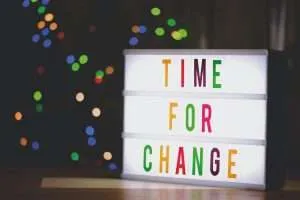Editorial Note:
This article touching on the sociological imagination and critical thinking is being published on behalf of Applied Worldwide’s 2021 student essay competition. Students were prompted to respond to the question, “Why is sociology important?” We have awarded 17 finalists from all over the world, and will publish these essays over the next several weeks.
This essay was written by Namrata Sinha, a student at the University of Delhi in India. This essay received a third place award. We had a really great turnout and would like to thank everyone who submitted an essay. We received a wide variety of creative interpretations and responses, so browse our essay directory!
Namrata Sinha on the Sociological Imagination and Critical Thinking
The basic insight of sociology is that it investigates social changes, the social causes, and the consequences of human behaviour. Sociology, with its multi-spectral approach to a myriad of social phenomena, derives an intertwined link with various disciplines.
The idea of delving into environmental studies, analyzing psychological postulations, studying economic theories to understand financial implications, and drawing help of the tools of social sciences, to complete a literature review project on – “Deforestation Versus Infrastructural Development: Sociological Impacts,” succinctly demonstrates the multidisciplinary nature of Sociology.
French Sociologist Pierre Bourdieu says, “the function of sociology as every science is to reveal that which is hidden.” Sociology equips us with the conscience to interpret and question the existing realities, that at times are deemed ‘societal prerogatives.’
The Systematic Study of Society
Society is the largest institution formed by individuals. Most societies in 21st century have a significantly recognized historical, cultural and political framework. They construct patterns of behaviour by calling certain actions or speeches acceptable or unacceptable. Struggles vis-à-vis dominance, variation in roles, and allocation of resources, are inherently attributed to such social systems.
A belief, that is accepted by a group, cannot be generalized for every individual, as every person endures a unique life experience, and accordingly interprets a situation. Eminent social scientist Charles Wright Mills says, “neither the life of an individual nor the history of a society can be understood without understanding both.” The conflict of ‘perspectives and ideologies’ tethers individuals and groups together. Therefore, it becomes important to study the relationship between them to analyze any social problem.
Sociological Imagination and Critical Thinking
Sociological imagination incites individuals to develop a deeper understanding of how their biography has evolved as a result of historical processes within a larger social context. This leads them to critique and appraise different cultural and social paradigms.
Mills says, the more we understand what is happening in the world, the more frustrated we often become, for our knowledge leads to powerlessness. When individuals begin rationalizing and critically analyzing cultural and social orders existing in the society, their awareness about contemporary issues affecting their lives at large, becomes more nuanced. Dissent in a society highlights its ‘liveliness’ and implies that, by all means, the society is toiling forward to bring a change.
Sociological imagination, as Mills defines it, is the realization and cognizance of the correlation between personal experience and the popularly established ideology. It encourages people to replace the lenses they’re currently using to view their own lives. The more an individual engages with the generalized opinions, the better he(she) becomes in identifying his(her) personal problems.
Roles in Society
Role is a coherent pattern of behaviour that is socially acknowledged to place a person in a society. As an individual, I perform numerous roles, that define and ascertain my position in various institutions that I associate myself with. I’m expected to dwell in the cubicle of alliances, that determine to transform my conduct as per my location. For instance- at home, I’m a daughter, and in college, I’m a student. Additionally, there are certain permanent roles that I’m expected to never dispossess under normal conditions like my gender identity, nationality, ascribed familial status, and many more.
Sociology, as a discipline, embarks upon creating a comprehensive understanding of roles, privileges, and power positions. It directs people to own the collective responsibility of working towards resolving a social problem, and in the same consciousness, augments in the cultivation of a thorough understanding of “collective identity.”
Sociology, as Max Weber elucidates, is a science that attempts to encompass the interpretative understanding of social action to thereby arrive at a causal explanation of its course and effects. As a multi-faceted discipline, sociology also offers a policy-oriented, and action-directed branch of learning, called ‘Applied Sociology.’ It enhances our capacities to practise sociological theories and methods outside of academic settings, with the aim to produce ‘positive social change through active intervention.’
Sociological Imagination and Critical Thinking in India
As India marches towards economic prosperity, we mustn’t overlook the socio-economic crises suffered by millions of Indians. Burgeoning gender inequality, along with the increasing income-devised and caste-based disparity, bestows a serious challenge for the exceptional futuristic prospects of India.
As sociology anchors a process of critical analysis and interpretation of common social elements, it bolsters ‘rationalism,’ and opens broad avenues of exegesis concerning kinship roles, gender-based inequalities, and various socio-cultural conflicts.
It doesn’t require any preconcerted specialization to foster the understanding of fundamentals of sociology.
Households in India
Household, which we consider as our safe personal space, can in fact become the arena of oppression and discrimination. Therefore, it becomes essential to juxtapose and scrutinize the discourse of domesticity in an explicit way. People from all ages and disciplines can hone their interaction with social systems by engaging with this quintessential subject. We can begin the dissemination of ‘rational and critical interpretation,’ by promulgating education in sociology at schools. For a child, the classroom becomes the archetypal environment for social interaction.
Children can become proficient in questioning and discerning motifs of different social prerogatives. It will benefit in unearthing solutions for larger socio economic problems. Also, this will help in plugging the gaping gender inequality in fields of scientific research, diplomacy, and manufacturing, and will also aid in the abolition of discrimination based on culture, caste or creed. Finally, it will also necessitate overarching implications in the way people construe different social changes.
Concluding Thoughts
Social structure is embedded in all societies, and to refurbish analogical inferences vis-à-vis varying forms of cultural and socioeconomic practices, it becomes substantial to incorporate ‘sociological understanding.’
Other Articles from Applied Worldwide on the Sociological Imagination
The Sociological Imagination of Unemployment







